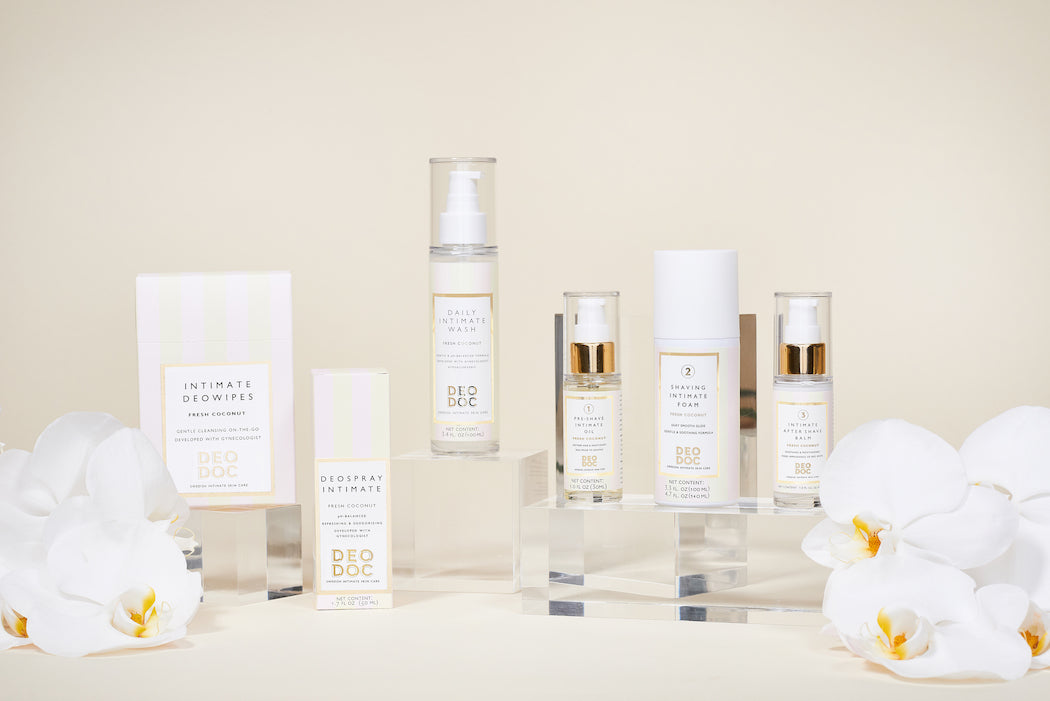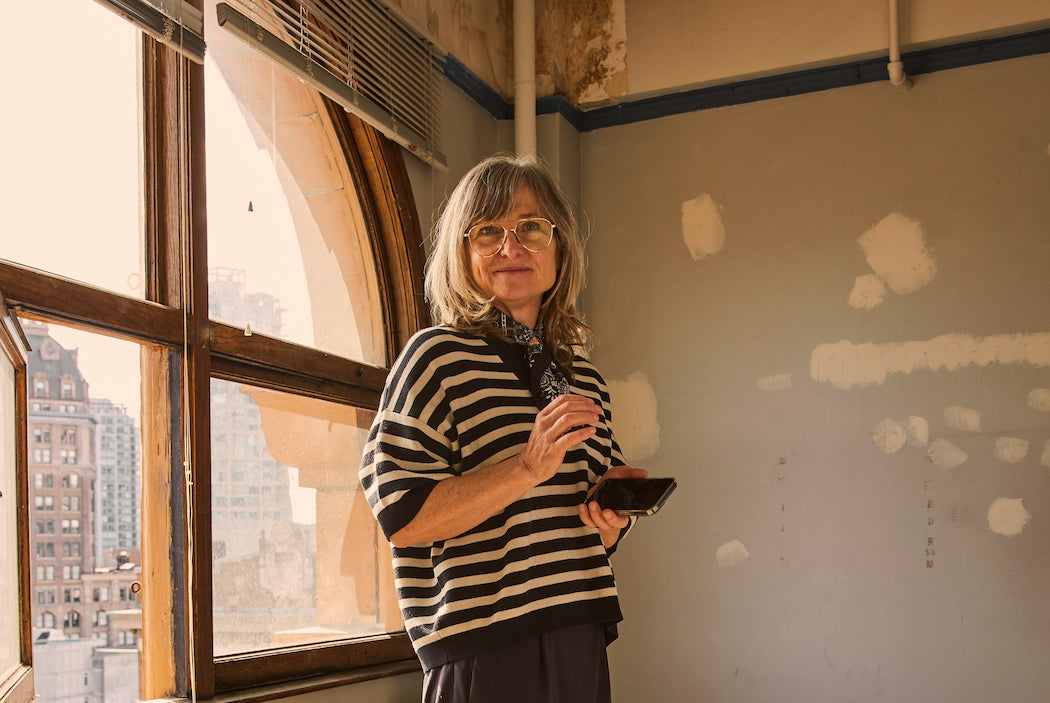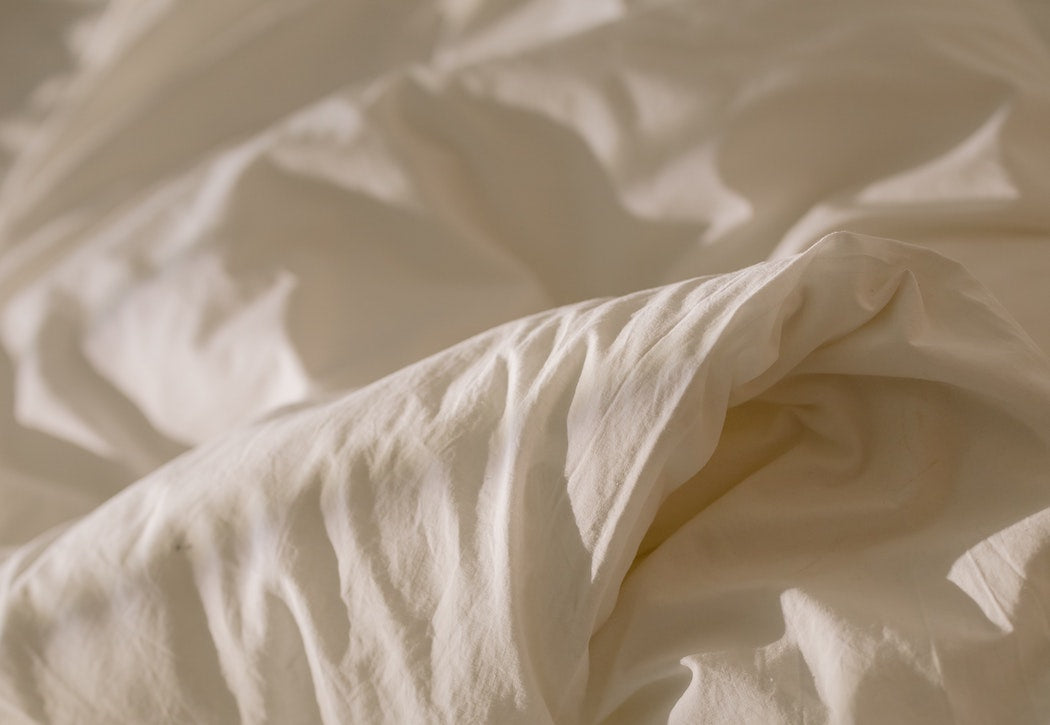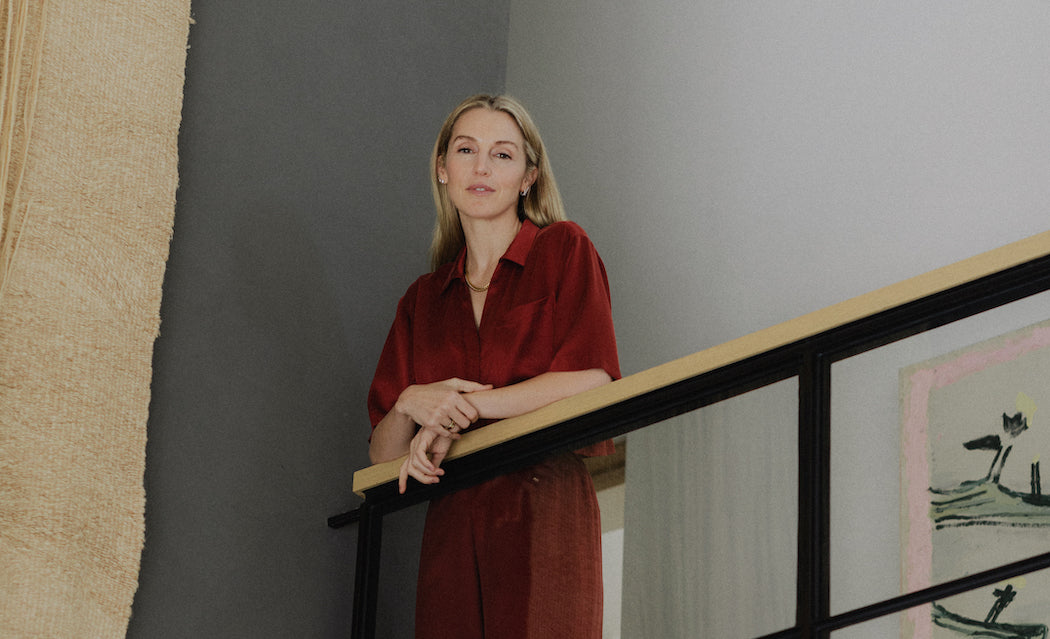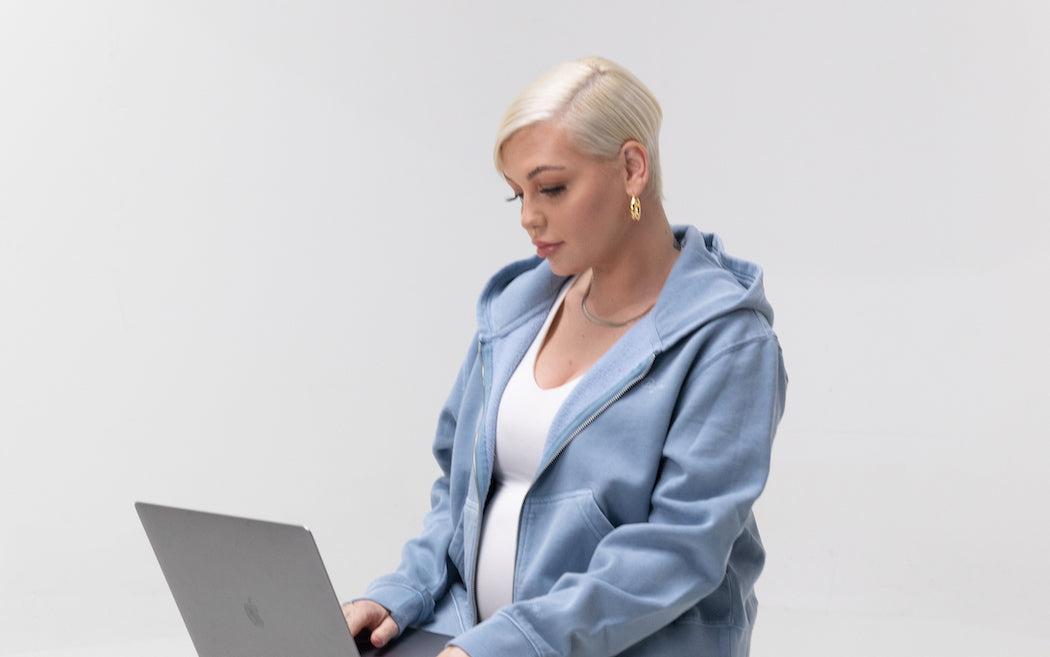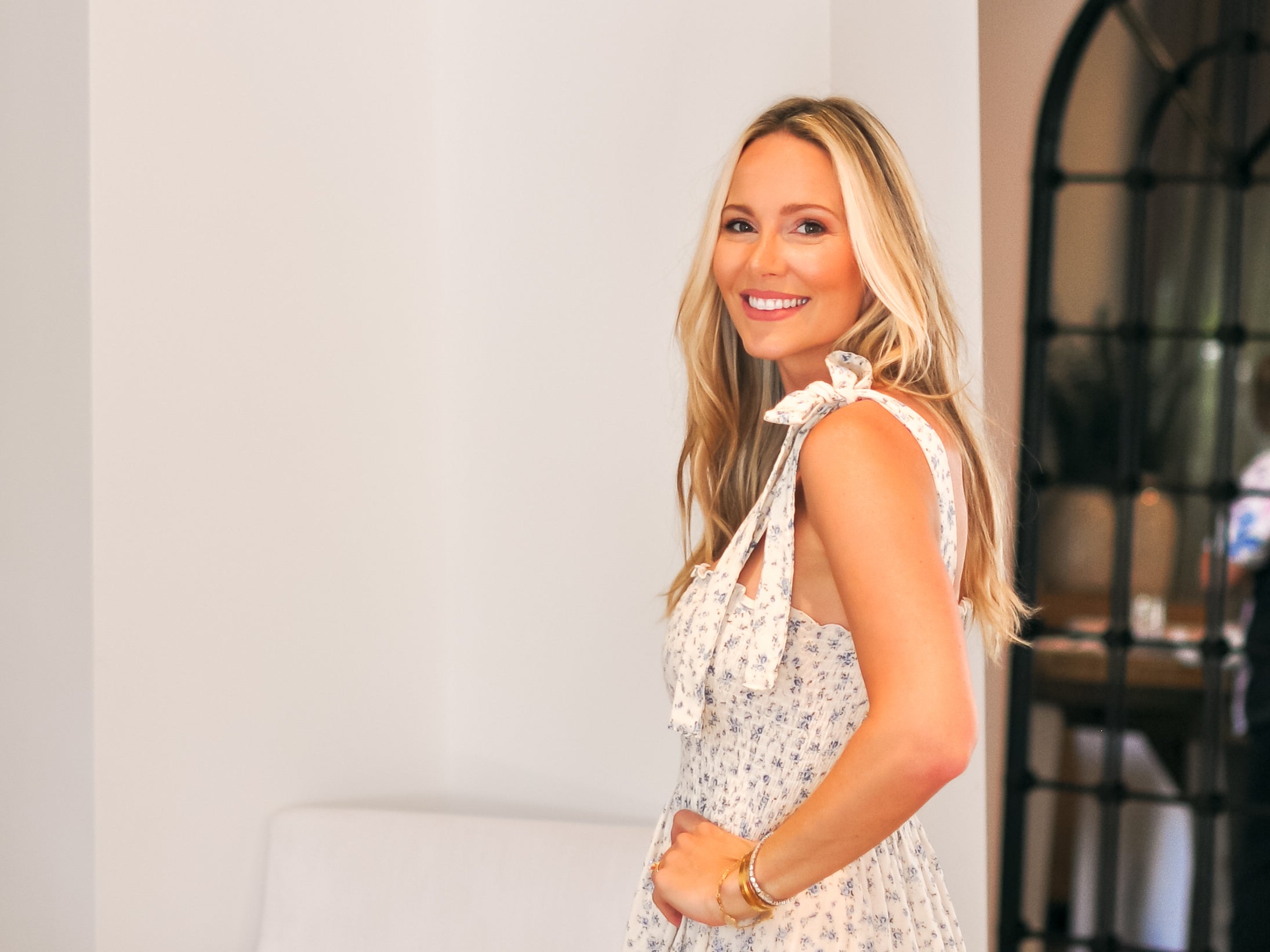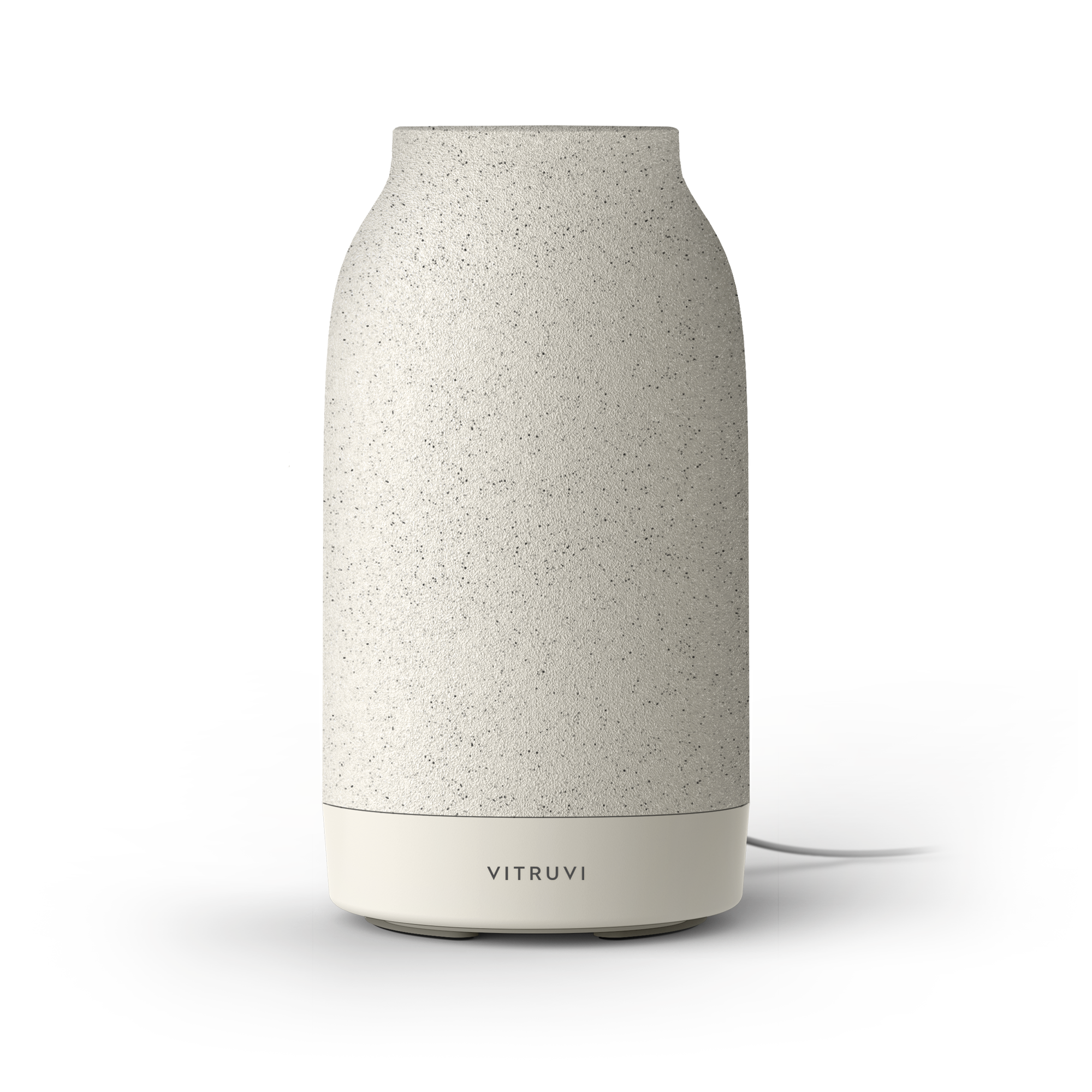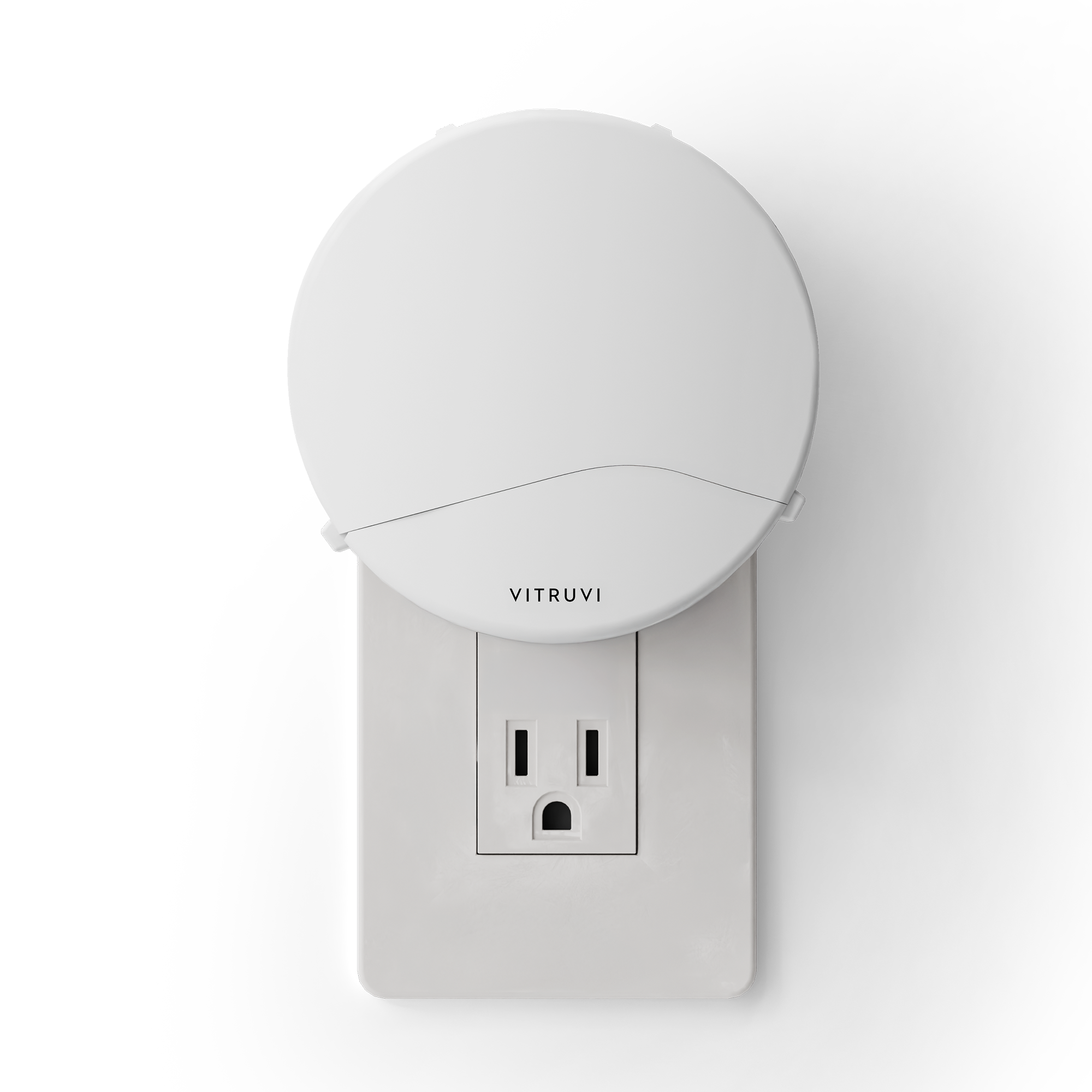We have face creams, hand creams, foot creams, even neck creams—but what about the vulva?
Considering that this is the most sensitive skin on a woman’s body, sisters and cofounders of Swedish intimate skincare brand DeoDoc, Dr. Hedieh Asadi and Hasti Asadi, were dismayed to learn that so many women simply use regular soap or even shampoo to wash their vulvas. “Products that women would never think of using on their faces,” says Hedieh via video, “they were using them on such delicate, intimate parts of their bodies.”
A large part of the problem, the sisters say, is that women simply don’t know their bodies very well—especially their sex organs. “A lot of people simply refer to that entire area as the vagina, which isn’t true,” says Hasti. “The vagina is inside, your vulva is outside.” And each area has its own health concerns, its own hygiene requirements. You can’t treat them the same way; there are different pH levels, different bacteria (the good kinds), different tissues.

These are all the considerations that go into the development of every DeoDoc product. “Everything we create,” says Hasti, “is something that we wish we could have for ourselves.”
“Why do I have this problem?”
In 2013, Hasti turned to her sister for some medical advice of a sensitive nature. “I was having an issue with intimate odor,” she explains. “But I told Hedieh that I don’t have bad hygiene, I don’t have any diseases. So why do I have this problem?”
It turns out this is a very common issue, and for a very simple reason: we all have sweat glands down there. Women wear tight underwear, even tighter jeans, we cross our legs all day, we sweat—there’s generally not a lot of ventilation happening between our legs, which can affect how fresh we feel (and smell).
From Hedieh’s medical training, she knew that intimate odor was a very common concern among women. But when the Asadi sisters started looking for feminine hygiene products, they were confronted with items that had the wrong pH, were loaded with artificial fragrances, or were simply too harsh for the vulva.
And that’s when frustration turned into inspiration.
“It takes a vagina to know a vagina”
The Asadi sisters teamed up with Hedieh’s former professor, Dr. Gunvor Ekman-Ordeberg, who has more than 50 years of experience in obstetrics and gynecology—and together they began developing products for DeoDoc. Their initial research revealed that feminine hygiene options were stuck in the 1970s and ‘80s, not just in the packaging and scents but crucially in their ingredients, which were all irritating to the vulva and vagina. And this wasn’t limited to Sweden; they saw that worldwide, women were given very few choices—and those choices weren’t very healthy ones. “Big pharma companies that were created by men made these products,” asserts Hedieh, “when they know nothing about the female anatomy.”
All they wanted in those early months was a deodorant that wouldn’t harm the most sensitive skin on their bodies. So that was the first product they made, the Deospray, which is now a top seller in Sweden. In the UK, their Calming Oil (“body lotion for your vulva”) is their most popular item, and in the US their fragrance-free, pH-neutral lubricant has flown off shelves.
Their products are resonating with women around the world. As Hedieh says: “It takes a vagina to know a vagina.”
“We don’t want another generation of women not being able to name their own female anatomy”
Even though Sweden has a reputation for being more liberal and progressive, the sisters still encountered stigma when they launched DeoDoc in 2014. The embarrassment and even shame surrounding the female body was pervasive, transcending generations and borders. It was a gamble to launch a line of products that literally no one wanted to talk about—but the sisters knew there was a need for DeoDoc and, more importantly, a need for the education that would come through learning about why their products were necessary for better female health.
Reception at first was lukewarm, but the sisters maintained their messaging about female intimate hygiene and the appropriate products to support that, all from the perspective of women doctors. Their slow and steady approach led to their sales doubling every year, and today DeoDoc is distributed in over 800 locations around the world, all while staying independently-owned. It’s important to them that DeoDoc remains led by women, by doctors, by educators.
“We don’t want another generation of women not being able to name their own female anatomy,” says Hedieh, “and not knowing how to take care of their most intimate parts.”

